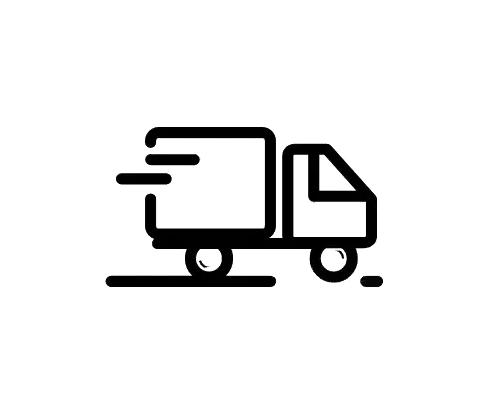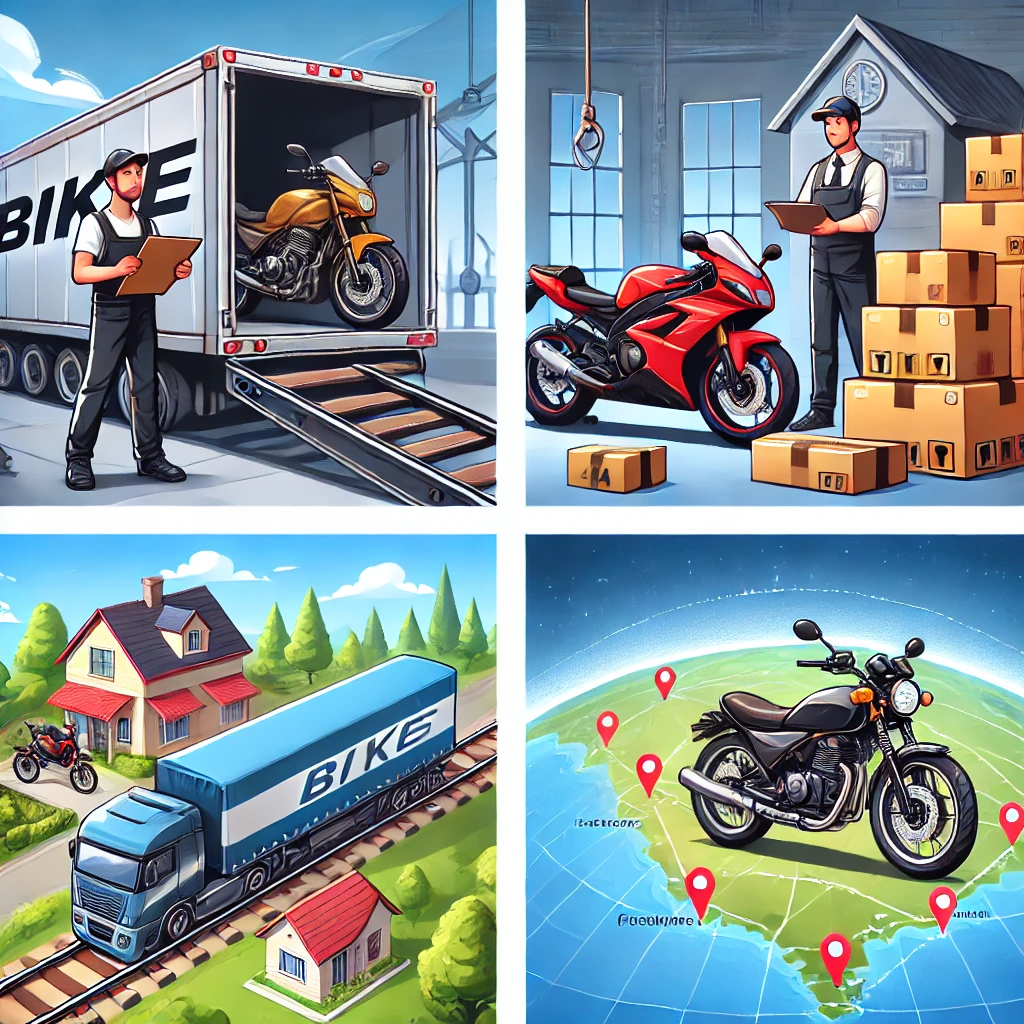Your Top 10 Logistics Questions Answered
Introduction: Understanding the World of Logistics
Logistics is an essential part of modern business operations. Whether you’re running an e-commerce store, a local service, or a large-scale manufacturing company, logistics plays a critical role in ensuring your products get to customers on time and in good condition. But the logistics world can seem complicated, with many moving parts and processes. That’s why we’ve put together answers to the top 10 logistics questions we hear most frequently at Book My Bike.
1. What Is Logistics?
Answer:
Logistics refers to the process of managing the flow of goods, services, and information from the point of origin to the final destination. In a business context, logistics involves planning, implementing, and controlling the movement and storage of goods to meet customer requirements. It includes transportation, warehousing, inventory management, and delivery.
- Key Takeaway: Logistics is all about ensuring products are delivered efficiently and on time, from start to finish.
2. What Are the Different Types of Logistics Services?
Answer:
Logistics services can vary depending on your business needs. Common types of logistics services include:
- Inbound Logistics: The transportation and storage of raw materials coming into a business.
- Outbound Logistics: The distribution of finished products to customers.
- Third-Party Logistics (3PL): Outsourcing logistics operations to a third-party provider.
- Last-Mile Delivery: The final stage of the delivery process, where goods are transported from a distribution center to the customer.
- Reverse Logistics: Managing product returns or waste disposal.
- Key Takeaway: The type of logistics service you choose depends on where you are in the supply chain and your specific business needs.
3. How Does Bike Delivery Work in Logistics?
Answer:
Bike delivery is a sustainable and efficient alternative to traditional delivery methods. Cargo bikes or regular bikes are used to transport goods, particularly for last-mile deliveries in urban environments. The key benefits include:
- Eco-Friendly: No emissions, making them perfect for cities with congestion and pollution concerns.
- Efficiency: Bikes can bypass traffic and deliver packages faster in densely populated areas.
- Cost-Effective: Lower operational costs compared to using trucks or vans.
- Key Takeaway: Bike delivery is an increasingly popular solution for eco-conscious and time-sensitive businesses.
4. What Is Last-Mile Delivery and Why Is It Important?
Answer:
Last-mile delivery refers to the final step of the shipping process, where goods are delivered from a local distribution center to the customer’s doorstep. It’s a critical part of the logistics process because:
- Customer Experience: The last-mile delivery is often what customers remember most, so it needs to be efficient and reliable.
- Cost Considerations: It can be the most expensive leg of the delivery process due to urban traffic and complex routing.
- Key Takeaway: Last-mile delivery is crucial for customer satisfaction and cost control. Efficient last-mile solutions like cargo bikes can reduce time and cost.
5. How Can I Track My Shipments?
Answer:
Most logistics companies, including Book My Bike, offer real-time tracking for shipments. Through a tracking number, customers can monitor their packages’ progress from the moment they are dispatched until they arrive at their destination. Tracking systems can provide updates such as:
- Estimated delivery time
- Current location of the package
- Delivery status (e.g., in transit, out for delivery)
- Key Takeaway: Tracking systems give you peace of mind, allowing you to keep tabs on deliveries and plan accordingly.
6. What Is the Cost of Logistics Services?
Answer:
Logistics costs can vary widely depending on factors like:
- Distance: Longer distances generally increase shipping costs.
- Size and Weight: Larger and heavier items will cost more to transport.
- Type of Service: Express or same-day delivery services tend to be more expensive.
- Mode of Transport: Trucks, planes, and bikes all come with different costs.
To get an accurate cost estimate, it’s best to contact your logistics provider for a tailored quote based on your specific needs.
- Key Takeaway: The cost of logistics is influenced by a variety of factors. Always compare different options and consider efficiency along with price.
7. How Can I Reduce My Logistics Costs?
Answer:
To reduce logistics costs, consider the following strategies:
- Optimize Routes: Use route optimization software to reduce fuel consumption and delivery times.
- Consolidate Shipments: Ship multiple items together to reduce the number of trips.
- Use Eco-Friendly Transportation: Consider using cargo bikes or electric vehicles to cut fuel costs and reduce your carbon footprint.
- Plan in Advance: Avoid last-minute shipping, which can be more expensive, and schedule deliveries to get better rates.
- Key Takeaway: Strategic planning and efficient transportation methods can significantly lower logistics costs.
8. What Are the Benefits of Using Sustainable Logistics?
Answer:
Sustainable logistics offers a range of benefits, including:
- Cost Savings: More efficient use of resources can reduce energy costs and waste.
- Positive Brand Image: Consumers are more likely to support businesses that prioritize sustainability.
- Regulatory Compliance: Many countries are introducing stricter environmental regulations, and adopting green logistics can help ensure compliance.
- Key Takeaway: Sustainable logistics is not only good for the planet but can also improve your business’s bottom line and reputation.
9. What Are the Risks in Logistics Management?
Answer:
Common risks in logistics management include:
- Supply Chain Disruptions: Delays, shortages, or issues with suppliers can cause significant delays.
- Damage to Goods: Improper handling, packaging, or transportation can result in damaged goods.
- Regulatory Compliance: Failing to comply with shipping laws and regulations can lead to fines and delays.
- Rising Fuel Costs: Fluctuations in fuel prices can impact the cost of transportation.
- Key Takeaway: Risk management is essential for smooth logistics operations. It’s important to have contingency plans in place to minimize disruptions.
10. How Do I Choose the Right Logistics Provider?
Answer:
Choosing the right logistics provider involves evaluating several factors:
- Reliability: Look for a company with a proven track record of delivering on time.
- Customer Service: Choose a provider that offers responsive, friendly support.
- Technology: Providers that offer real-time tracking and efficient logistics software can make your life easier.
- Sustainability: If eco-friendly practices matter to you, make sure the provider uses sustainable transportation methods, like cargo bikes.
- Key Takeaway: Choosing the right logistics provider is about finding a balance between cost, reliability, customer service, and sustainability.
Conclusion: Logistics Made Simple
We hope these answers help demystify the world of logistics for you. Whether you’re a business owner or a customer looking for delivery services, understanding these common logistics questions can help you make informed decisions. At Book My Bike, we’re here to provide sustainable, reliable, and cost-effective delivery solutions for your business needs.
Call-to-Action (CTA)
- “Have more logistics questions? Contact us today to get personalized solutions for your business.”
- “Ready to streamline your logistics? Start by booking your next delivery with Book My Bike!”



